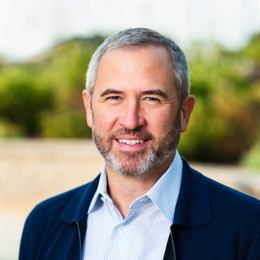Ripple Acquires Hidden Road for $1.25 Billion, Becomes First Crypto Company with Multi-Asset Prime Broker
Ripple has announced its acquisition of Hidden Road for $1.25 billion, marking one of the largest deals in the digital assets sector. This acquisition makes Ripple the first crypto company to own and operate a global, multi-asset prime broker.
Hidden Road, a rapidly growing prime broker, provides services including clearing, prime brokerage, and financing across foreign exchange, digital assets, derivatives, swaps, and fixed income.
Ripple Acquisition Supports Institutional Adoption of Crypto

“We are at an inflection point for the next phase of digital asset adoption—the US market is effectively open for the first time due to the regulatory overhang of the former SEC coming to an end, and the market is maturing to address the needs of traditional finance,” said Brad Garlinghouse, CEO of Ripple.
The acquisition aims to support the next phase of growth in the crypto industry by providing the infrastructure necessary for institutional adoption. Prime brokers are seen as essential for bringing credibility and professional trading services to digital assets, helping to bridge the gap between traditional finance and decentralized finance.
“With these tailwinds, we are continuing to pursue opportunities to massively transform the space, leveraging our position and the strengths of XRP to accelerate our business and enhance our current solutions and technology,” Garlinghouse added.
Today, Ripple announced it is acquiring Hidden Road for $1.25B– becoming the first crypto company to own and operate a global, multi-asset prime broker. Together, Ripple and Hidden Road are bringing the promise of digital assets to institutional customers at scale, bridging…
— Ripple (@Ripple) April 8, 2025
Ripple Enhances Infrastructure with Hidden Road Acquisition
“With new resources, licenses, and added risk capital, this deal will unlock significant growth in Hidden Road's business, allowing us to increase capacity to our customer base, expand into new products, and service more markets and asset classes,” said Marc Asch, Founder and CEO of Hidden Road.
This acquisition reinforces Ripple USD's (RLUSD) position as a USD-backed stablecoin, as Hidden Road uses it as collateral across its prime brokerage products. RLUSD will be the first stablecoin to enable cross-margining between digital assets and traditional markets.
Hidden Road will migrate its post-trade activity to XRPL to streamline operations and reduce costs, highlighting XRPL's potential for institutional decentralized finance (DeFi). Ripple aims to optimize costs and liquidity in Ripple Payments and provide custody services for Hidden Road's customers needing bank-grade digital asset custody.
Today, @Ripple announced the acquisition of Hidden Road for $1.25B, one of the largest deals ever in the crypto space. But the price tag isn’t what’s most important – it’s that this deal marks a once-in-a-lifetime opportunity for crypto to access the largest and most trusted…
— Brad Garlinghouse (@bgarlinghouse) April 8, 2025
“Together with Ripple, we're bringing the same level of trust and reliability that institutional clients are accustomed to in traditional markets—designed and optimized for a digital world,” Asch added.
You may want to read at FinanceMagnates.com: $1 Billion Valuation: Hidden Road Considering Sale or Capital Raise.
Hidden Road CEO Highlights Crypto Adoption Challenges
Before the Ripple-Hidden Road acquisition, FinanceMagnates.com interviewed Michael Higgins, International CEO of Hidden Road, who discussed the company’s approach to regulatory challenges and its plans for institutional crypto adoption.
Higgins highlighted the firm’s recent achievement of securing a license under the EU’s Markets in Crypto-Assets (MiCA) regulation in the Netherlands, positioning it as one of the few approved entities under the comprehensive European crypto-asset regulation.
He also addressed the balance between traditional finance regulations and the growing crypto market, emphasizing the need for clear, tailored regulations to encourage institutional involvement in the sector.
Ripple's Strategic Moves: Partnerships, Regulation, and Investor Interest
Ripple has gained attention due to recent developments. Michael Saylor, Executive Chairman of Strategy, discussed the inclusion of cryptocurrencies in US strategic reserves following President Trump’s executive order, which listed Bitcoin, Ethereum, XRP, Solana, and Cardano. Saylor suggested that XRP should be regulated.
Great dinner last night with @realDonaldTrump & @s_alderoty.
— Brad Garlinghouse (@bgarlinghouse) January 8, 2025
Strong start to 2025! pic.twitter.com/UjM6lahUG4
Ripple CEO Garlinghouse and CLO Alderoty met President-elect Trump on January 6, sparking speculation about the SEC’s 2020 lawsuit concerning XRP’s status as an unregistered security.
Ripple has expanded partnerships with Revolut and Zero Hash, aiming to compete with USDT and USDC. In Portugal, Ripple collaborates with Unicâmbio for instant payments between Portugal and Brazil using digital assets.
🚨 New partner alert: Ripple USD – a trusted, transparent, and regulated stablecoin built for payments – is now available for trading on @ZeroHashX and @RevolutApp!
— Ripple (@Ripple) February 5, 2025
Get $RLUSD: https://t.co/jrEiNBWKgN pic.twitter.com/36q5OU5xfa
In South Korea, BDACS will use Ripple Custody to secure XRP and RLUSD, while Ripple donated $100,000 in XRP for California wildfire relief. Ripple expects Japanese banks to adopt XRP Ledger by 2025 for cross-border payments. In DeFi, Ripple partners with Chainlink to integrate RLUSD into Ethereum platforms.



